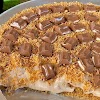Most people who fast during Ramadan suffer from thirst, which may cause headaches, fatigue, and difficulty concentrating, however, studies that have been conducted have indicated that this is not harmful to health, provided that an adequate amount of fluids is consumed after breakfast to make up for what was lost during the day.
The British Nutrition Foundation stated in a study that during fasting hours when neither food nor drink is eaten, the body uses the stock of carbohydrates (stored in the liver and muscles) and fats to provide energy once all calories from foods eaten during the night are consumed, and it cannot The body stores water, so the kidneys keep as much water as possible by reducing the amount lost in urine, however, the body cannot avoid losing some water when you go to the toilet, or through your skin, and when you sweat, if the weather is hot.
The British Nutrition Foundation provides some advice during fasting during Ramadan:
1- For those who on normal days consume caffeinated drinks such as tea and coffee during the day, a lack of caffeine during fasting may initially lead to headaches and fatigue, the effect of caffeine may diminish during Ramadan, as the body adjusts to not consuming caffeine during the day.
2- Once breakfast, the body can re-hydrate itself and gain energy from the foods and drinks consumed.
3- After not eating for a long time, you may find it useful to eat slowly at breakfast, and start eating a lot of fluids and low-fat and fluid-rich foods.
4- Drinking plenty of fluids, as well as eating foods rich in fluids, such as fruits, vegetables, milk and soup, is very important to replace lost fluids during the day and start the next day of fasting well.
5- Salt stimulates thirst, so it is good to avoid eating a lot of salty foods, and the pre-dawn meal provides fluids and energy for the next fasting day, so making healthy choices can help you deal better with fasting.
6- Not to overeat during Ramadan, as eating a lot of fried, creamy and sweet foods may lead to weight gain during Ramadan, the month of Ramadan can be the time to make changes to improve the balance of your diet that you can maintain in the long term.










0 Comments